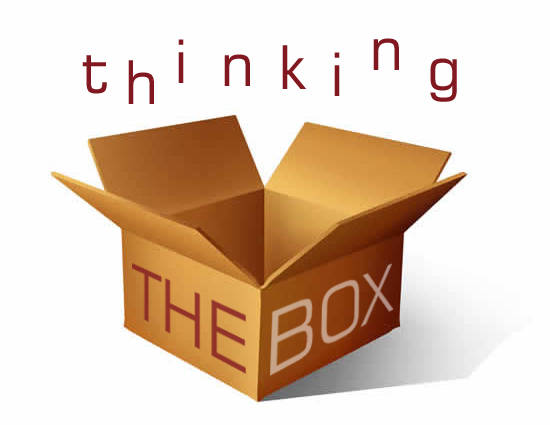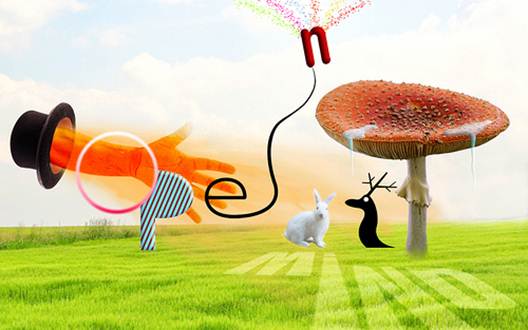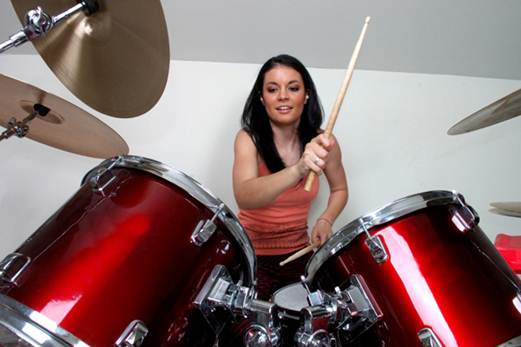It’s time to shake things up! Practise
seeing life from other perspectives and you’ll keep your mind agile and
creative
Soon after arriving in the US as a
17-yea-old exchange student, I was invited to a lunch party with my host
family. I wrapped one of the gifts I’d brought and vowed not to put a foot
wrong as I took my place at the table full of strangers. As we began to eat, I
noticed the child seared next to me watching me intently. Transferring her
upturned fork to her left hand, she picked up the knife that was splayed across
the plate and pushed some food on to the back of the fork, as I was doing.
“Stop that!” her mother scolded. “Just because she doesn’t know how to use a
knife and fork doesn’t mean you can copy her.”

I remember the hot flood of shame and
outrage. They were the ones who were wrong! But then I recalled some valuable
pre-departure advice: strange customs aren’t wrong, they’re just different.
That lunch was a painful introduction to the truth that my way was not the only
way. It was a lesson about judgement that I’ve never forgotten.
It’s easy to be “broad-minded” involves
stepping out of your comfort zone and catching yourself when you feel
threatened by difference or when you’re about to say something nasty about someone’s
accent, style of dress, religious or cultural practices. We don’t always get it
right-open-mindedness is an ongoing exercise - but here are a few suggestions
to help you on your way …
1. See yourself as a work in progress

If you’re wedded to a set routine, a
special cup or a particular seat at the staff meeting, shake yourself up and do
things differently. It’s not about the cup or the chair, but about the ability
to be flexible and creative in your thinking.
When you’re confident that you can adapt to
changing circumstances and try new things, you’re less daunted by that fresh
project you have to tackle, or the recently appointed colleague whose
background is different from your own.
Write Anais Nin said: “We do not see things
as they are, we see them as we are”. We’re inclined to run everything that
happens to us through our individual filters, usually responding as if we were
the center of the universe.
“But the more you experience, the more you
come to realize that there are infinite ways of seeing the world,” says
Johannesburg psychologist and life coach Christine Boon.
“Research has shown that the brain never
stops changing through learning. Neurons can form new connections and this
gives us hope that we can unlearn patterns of behavior or thinking to effect
positive change in ourselves. If you try to learn something new every day, you
keep those neurons firing,” she says.
2. Try practicing a little tolerance
Most people are comfortable and secure in
their own view of the world, says Boon. “Being confronted with something
different can create uncertainty and anxiety, which reduces open-mindedness.
When we revert to a conditioned response or stereotypical thinking, such as
‘Women should not… he’s Jewish, so… Americans are all…’, we’re failing to see the
other person’s humanity and uniqueness.

Try
practicing a little tolerance
“Ultimately, the ‘them and us’ attitude
created by a closed mind leads to discrimination, in all its terrible forms.”
“A simple way to shift your perception is
to make an effort to put yourself in someone else’s shoes. What is it like to
be that person? You don’t have to agree with everything they do or say; just
try as hard as you can to understand their point of view.”
3. Accept the inevitability of change

Lack of open-mindedness often boils down to
a fear of change. If you’ve been taught that the world is a dangerous place,
you won’t embrace it with a confident or adventurous attitude.
“In SA, political change is particularly
stressful,” explains Dr Guru Kistnasamy, a psychologist at Life Chatsmed Garden
Hospital in Durban. “When you’ve experienced crime, violence, displacement or
discrimination you’ve likely to be wary of what change might bring. Our history
has bred suspicion and false perception; we tend to generalize and perpetuate
stereotypes. We have to remind ourselves not to jump to conclusions but test
our assumptions against reality.”
We have to remind ourselves not to jump to
conclusions but test our assumptions against reality.”
This means engaging with the people and thins
that challenge us - not in a threatened, defensive way, but in a spirit of
discovery and learning.
“If you’re able to see a situation through
multiple lenses, this will lead to creative problem-solving in all areas of
your life,” says Boon. “It doesn’t mean that you have to become so flexible
that you can’t make a decision, or that you have to give up your opinions. You
can hold a strong view on a topic while allowing the possibility that there
could be another way to see things. This is the essence of keeping an open
mind.”